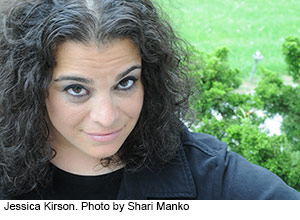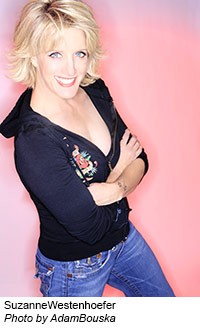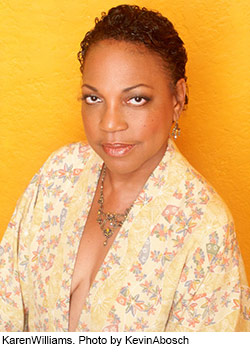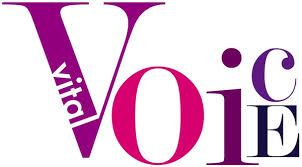By Katy Ray
 Throughout the past 30 years, women have experienced another social and sexual revolution. In the midst of the mostly male-saturated industry of comedy, three leading ladies have stood at the forefront of the women’s revolution, using their comedy and sexuality to empower, educate, and reform.
Throughout the past 30 years, women have experienced another social and sexual revolution. In the midst of the mostly male-saturated industry of comedy, three leading ladies have stood at the forefront of the women’s revolution, using their comedy and sexuality to empower, educate, and reform.
Jessica Kirson, Suzanne Westenhoefer, and Karen Williams have spent the past three decades paving the way for new female voices in the industry. Overcoming overwhelming sexual and social prejudices, these strong, vivacious, and undeniably funny women have built a legacy not only of personal success, but also of social reform that will undoubtedly impact generations of women to come.
Jessica Kirson
 Growing up, Jessica Kirson was always known as the class clown.
Growing up, Jessica Kirson was always known as the class clown.
“My grandmother used to say, ‘Every time people are with you, they’re laughing. You should do stand-up,'” says Kirson. After mulling it over, she traveled to New York City, enrolled in comedy classes, and eventually started performing at open mic nights. “I just fell in love with it,” she beams.
Starting her career in 1998, Kirson soon realized the extent of homophobia and gender bias in both the comedy field and nation at large.
“There are so many funny women who don’t get the stage time or money they deserve,” she points out. “If you label yourself as a lesbian comedian, unfortunately, you’re going to get pigeonholed. You’re not going to get a lot of things, and it’s going to be harder for you,” states Kirson.
Even now, more often than not, clubs have very few female headliners and even fewer lesbian headliners, at that. Despite these social barriers, Kirson has made a name for herself in the comedy field, relying solely on her keen ability to be funny. Reading people, learning about them, and figuring them out drive her energy on stage.
“I’m a good imitator of people,” explains Kirson. “And, my mom’s a therapist. I think that has a lot to do with it. I say a lot of the things I think people are thinking, but wouldn’t necessary say,” she laughs.
Along with humor, her act brings with it honesty and truth. Kirson experienced her first lesbian relationship while studying at the University of Maryland.
“No one talked about being gay when I was in high school. It’s completely different now,” she says. For this reason, Kirson held a secret relationship with a woman for three years because she was horrified to come out.
Eventually, she made the decision to come out to her family. Kirson’s family was very accepting; they were more concerned about how she would be treated by the world, rather than the fact that she was a lesbian. Perhaps it is because of her family’s supportive reaction that Kirson often has a message for her audience at every show.
“I point out how a lot of people are angry, a lot of people are still racist and homophobic. I have ways of saying it where it’s funny, but it points out the truth. I really want people to walk away and think to themselves, ‘God, maybe I should be more accepting and kinder,'” she reflects.
Kirson has been featured on numerous top-rated comedy programs, including three on NBC: Last Comic Standing (Seasons 2 and 3), Last Call With Carson Daly, and The Tonight Show With Jay Leno. She currently teaches comedy on Sundays in New York City.
Suzanne Westenhoefer
 Suzanne Westenhoefer always knew that she wanted to be an entertainer. After graduating from high school, she moved outside of Manhattan, New York. An aspiring actress, she began pursuing auditions, while bartending to make ends meet. As Westenhoefer puts it, before she knew it, she was “30 and the world’s greatest bartender.”
Suzanne Westenhoefer always knew that she wanted to be an entertainer. After graduating from high school, she moved outside of Manhattan, New York. An aspiring actress, she began pursuing auditions, while bartending to make ends meet. As Westenhoefer puts it, before she knew it, she was “30 and the world’s greatest bartender.”
While slinging drinks, she would crack a joke or two, and before long, patrons started to notice.
“Everyone said, ‘You’re funny. You should do stand-up,'” recounts Westenhoefer. “But I’m openly gay, and I thought to myself, ‘What am I gonna do?'”
After a few more loving nudges from her friends and partner at the time, she took the plunge and began attending open mic nights at comedy clubs throughout the Big Apple. But being an openly gay comedian in 1990 posed several challenges to her newfound aspiration.
“There were only a few openly gay comics, and they had to perform exclusively for gay clubs. There were no gay nights at straight clubs, no openly gay comics on television. I wanted to try stand-up, but knew there was no way to do that without being open,” she admits.
Despite these challenges, Westenhoefer remained committed to her goal. After pouring out sweat, blood, and tears, her career “just took off.”
“Two years later, I was able to quit my bartending job and tour exclusively, making my money and supporting myself as a comedian,” states Westenhoefer.
She is currently credited as the first openly gay comedian to appear on television. She reacted to her success with humility: “I was like…this is my life. This is my career.”
In the early stages of her career, her philosophy was to show the straight world that there was nothing to fear about gay people. “We are just like you. We are your teachers, nurses, family, friends, and we are fine. Gay is fine. You need not fear us. We are wonderful and extraordinary people, and we are in your lives,” she affirms.
Westenhoefer is currently traveling throughout the East Coast and unabashedly draws on her successes and failures to instill humor and encouragement throughout her show, “Jilted Gypsy…for Sale or Rent.” Much of her life experience informs the content of her show, which is constantly evolving.
“My show is very extemporaneous. It’s different all the time. It’s about whatever’s true for me at that moment,” she explains.
Using comedy, Westenhoefer aims to show audience members that throughout her life—her tragedies, mistakes, and goodness—there is still humor in all of it.
“I want to show my audience that tragedy is something you should grieve. Then, mock it, leave it, and move forward,” says Westenhoefer. “Right up until the end, the journey of your life is going to be both phenomenal and tragic.” She is set to emcee the Mautner Project’s Gala and Dance on March 9, 2013, at the Omni Shoreham Hotel, in Washington, D.C.
Throughout her career, which spans more than 20 years, Westenhoefer has earned her title as one of the leading ladies in comedy. She has been featured on HBO, Comedy Central, and CBS’s The Late Show With David Letterman. Along with Kate Clinton, Marga Gomez, and Karen Williams, she was featured in the film Laughing Matters, a 2004 documentary about these four lesbian stand-up comics.
And, like Jessica Kirson and Karen Williams—also leading ladies in comedy— Westenhoefer came out during the wave of the sexual LGBT movement, and she’s “very, very appreciative of that.”
Karen Williams
 Karen Williams started performing comedy in 1983, almost on a whim.
Karen Williams started performing comedy in 1983, almost on a whim.
“Some friends and I were at The Hyatt at Oakland. A friend came by and said he was going to be showcasing his comedy at a small bar,” she recollects. “Before I knew it, I blurted out, ‘I do comedy, too.'”
Though she’s not quite sure what inspired that exact reaction, she knew from that moment on that she was going to have to deliver.
“It’s not like I ever thought I’d be a comedian,” continues Williams. Citing that the most common fear among adults is public speaking, Williams decided that she was going to do more than just speak in public: She was going to make people laugh.
In her early 30s, Williams realized that life pretty much terrified her; that’s what propelled her into comedy. And, although she first noticed her affinity for women around the age of 5, it wasn’t until much later in her life—after marrying a man and having a child—that Williams decided to fully come out of the closet.
“When I grew up, women had three options for a profession: nurse, teacher or secretary,” she explains. “We [women] were restricted with freedom. On the heels of the civil rights movement and the sexual revolution, there were only two options for gender. Abortions were only legalized in 1972, and women, whether gay or straight, were going through a lot.”
The changing social and political climate was a catalyst for Williams’ decision to be true to herself.
“It was an interesting evolution,” she remarks. “Fear is what holds us back, even fear about coming out. It’s such a personal revolution you have to go through when faced with the choice to either stay in the closet and never be 100 percent you, or challenge yourself to be authentic and come out to the world.”
Williams notes that “feeling safe” is pivotal in the coming out process. Without a doubt, her philosophy on healing with humor has evolved from her coming out story and other life experiences. Williams believes in using her humor to empower and educate.
“My philosophy is that laughter is the way to access your joy,” she asserts. In every performance, she hopes to give her audience a way to access the joy that oftentimes gets further away from us as we live in a world of troubles. Williams also hopes that above all else, her audience laughs.
“My main thing is that I want to be funny. If I focus too much on a message, I run the risk of losing my sole purpose of being there,” she admits. “You don’t go to a dentist to get laughs. And you don’t go to a comic to get your teeth fixed.”
As noted previously, Williams shared the incredible journey of her comedy and coming out process in the award-winning documentary Laughing Matters. She has performed on such prominent comedy outlets as HBO; additionally, she has been a featured guest on the ever-popular Olivia Cruises. Williams’ credentials also include serving as an adjunct professor at Cleveland State University, where she taught a senior seminar on humor.
Williams is currently booking her 2013 national comedy tour, “Healing With Humor—Freedom From Fear,” which is dedicated to victory over violence. Through these shows, Williams hopes to raise awareness and work for social justice.



